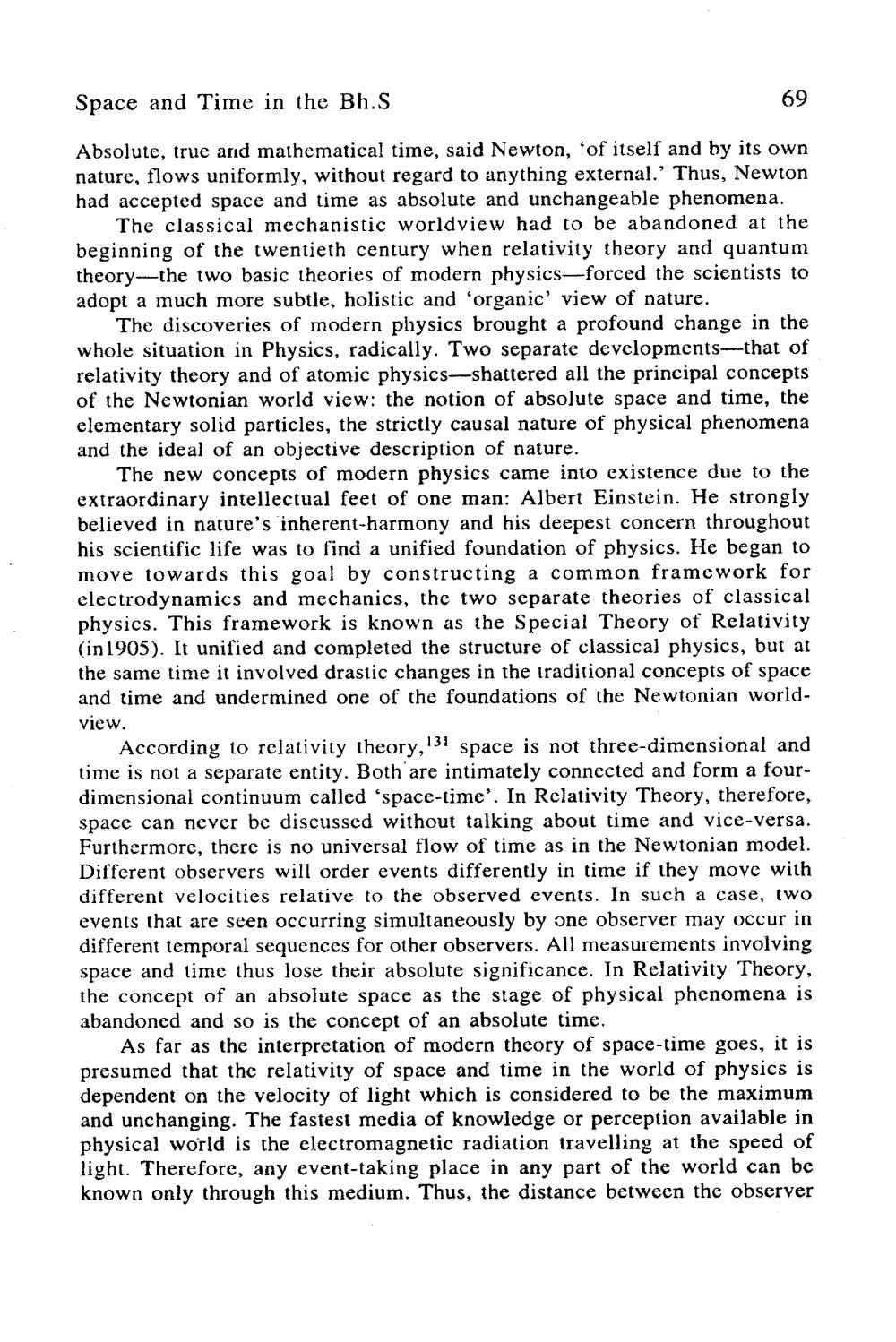________________
Space and Time in the Bh.s
69
Absolute, true and mathematical time, said Newton, of itself and by its own nature, flows uniformly, without regard to anything external.' Thus, Newton had accepted space and time as absolute and unchangeable phenomena.
The classical mechanistic worldview had to be abandoned at the beginning of the twentieth century when relativity theory and quantum theory--the two basic theories of modern physics-forced the scientists to adopt a much more subtle, holistic and 'organic' view of nature.
The discoveries of modern physics brought a profound change in the whole situation in Physics, radically. Two separate developments-that of relativity theory and of atomic physics-shattered all the principal concepts of the Newtonian world view: the notion of absolute space and time, the elementary solid particles, the strictly causal nature of physical phenomena and the ideal of an objective description of nature.
The new concepts of modern physics came into existence due to the extraordinary intellectual feet of one man: Albert Einstein. He strongly believed in nature's inherent-harmony and his deepest concern throughout his scientific life was to find a unified foundation of physics. He began to move towards this goal by constructing a common framework for electrodynamics and mechanics, the two separate theories of classical physics. This framework is known as the Special Theory of Relativity (in 1905). It unified and completed the structure of classical physics, but at the same time it involved drastic changes in the traditional concepts of space and time and undermined one of the foundations of the Newtonian worldview.
According to relativity theory, 131 space is not three-dimensional and time is not a separate entity. Both are intimately connected and form a fourdimensional continuum called 'space-time'. In Relativity Theory, therefore, space can never be discussed without talking about time and vice-versa. Furthermore, there is no universal flow of time as in the Newtonian model. Different observers will order events differently in time if they move with different velocities relative to the observed events. In such a case, two events that are seen occurring simultaneously by one observer may occur in different temporal sequences for other observers. All measurements involving space and time thus lose their absolute significance. In Relativity Theory, the concept of an absolute space as the stage of physical phenomena is abandoned and so is the concept of an absolute time.
As far as the interpretation of modern theory of space-time goes, it is presumed that the relativity of space and time in the world of physics is dependent on the velocity of light which is considered to be the maximum and unchanging. The fastest media of knowledge or perception available in physical world is the electromagnetic radiation travelling at the speed of light. Therefore, any event-taking place in any part of the world can be known only through this medium. Thus, the distance between the observer




